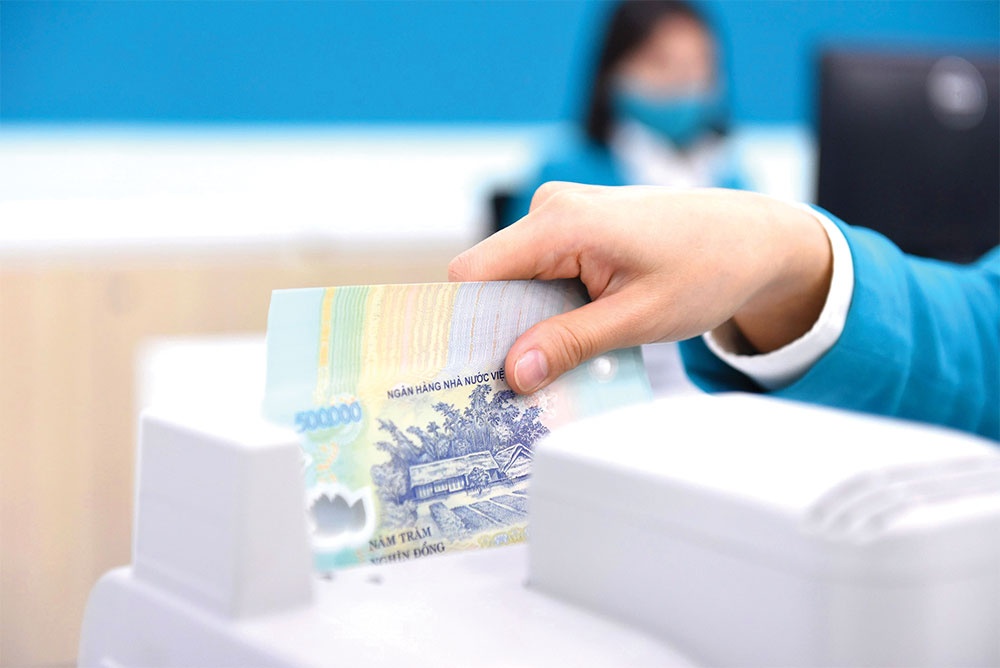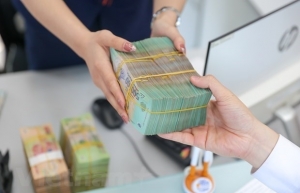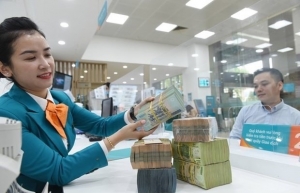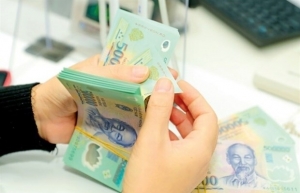Central bank pushes for rule alignments
According to the central bank (SBV), Decree No.01/2014/ND-CP was based on the three laws regarding credit institutions, securities, and investment, which have all now been updated. “Decree 01, therefore, needs to be reviewed to be consistent with current regulations, particularly those related to foreign investors purchasing shares in joint-stock companies here,” the SBV said.
It also pointed out that the Law on Credit Institutions has been amended to include the right of the transferee to “sell or issue shares of the credit institution to foreign investors” in accordance with the approved transfer plan. However, Decree 01 has not yet provided guidance on the right of the transferee.
As per the recent proposal, the government will decide the maximum foreign ownership limit (FOL) in credit institutions receiving mandatory transfers. This ratio is allowed to exceed 30 per cent but no more than 49 per cent of the charter capital of the receiving bank, except for banks with state ownership exceeding 50 per cent.
 |
| Central bank pushes for rule alignments, photo Le Toan |
The SBV expects this new regulation to create conditions for credit institutions receiving transfers to enhance their financial capacity through attracting more foreign investment and increasing equity.
“These banks can in turn improve management capacity, innovate technology, and provide better support for transferred credit institutions. This will contribute to the successful implementation of the mandatory transfer plan, stabilise the banking and financial system, and stabilise the economy and society,” the SBV said.
Meanwhile, the draft maintains regulations that a foreign organisation may not own more than 15 per cent, a foreign strategic investor may not own more than 20 per cent, and a foreign investor and related persons may not own more than 20 per cent of the charter capital of a Vietnamese enterprise. The total share ownership of foreign investors may not exceed 30 per cent of the charter capital of a commercial bank.
Currently, four commercial banks – Vietcombank, MB, VPBank and HDBank – are in the pipeline to undergo mandatory transfer of ownership to the weaker lenders of DongABank, CBBank, OceanBank and GPBank. Among these, Vietcombank, which is over 50 per cent state-owned, will not be eligible to increase foreign ownership.
Two of the other commercial banks have suggested an increase in the FOL to 49 per cent. The SBV believes that adjusting the limit for these banks will not have too much of an impact on the banking system, as the two lenders in question account for nearly 6.6 per cent of total assets, 5.26 per cent of deposit market share, and nearly 5.5 per cent of lending market share of the entire joint-stock banking system as of June 2022.
Some experts assessed that this is a sound decision. Nguyen The Minh, head of research and development division at Yuanta Securities, said that there would inevitably be an impact on the parent bank’s capital adequacy ratio when taking over a weak bank. “This can even result in the parent bank struggling to achieve the capital adequacy standard under Basel II standards,” Minh said.
Therefore, the prerequisite for ensuring the health of the bank is that the parent bank must increase its capital. “The question remains as to where the funds for such a capital increase will come from. Certainly, the bank will not seek out retail investors, but will have to target strategic foreign investors,” Minh said.
“The challenge is to attract these foreign giants by offering a sufficiently attractive ownership ratio that ensures their interests are safeguarded. Hence, increasing the maximum FOL to 49 per cent is the most powerful magnet to attract them.”
Meanwhile, at the end of March, VPBank announced an agreement to sell 15 per cent to Sumitomo Mitsui Banking Corporation (SMBC). Following the deal, SMBC Group has become a strategic investor in VPBank. The investment from SMBC will bring in $1.6 billion in Tier 1 capital for VPBank, equivalent to a price of $1.35 per share, raising VPBank’s total equity from $4.5 billion to approximately $6.1 billion.
According to VPBank’s 2023 AGM, the bank plans to propose a private placement to foreign strategic investors to increase its charter capital and raise the total FOL in VPBank to a maximum of 30 per cent of charter capital.
Data from Vietnam Securities Depository shows that, as of March 30, VPBank’s limit is currently at a maximum of 17.64 per cent, with only about 0.002 per cent of room for foreign ownership remaining.
HDBank’s FOL is currently at a maximum of 20 per cent, with 1.09 per cent of room for foreign investors remaining. The maximum limit for investors in MSB is 30 per cent, with approximately 0.03 per cent of the limit unfilled. Meanwhile, MB has fully filled its FOL of 23.23 per cent.
| The State Bank of Vietnam believes that it is only appropriate to expand and encourage foreign investors to invest in weak credit institutions and those undergoing transfer, rather than expanding to all. The current regulations on the total share ownership of foreign investors in Vietnamese credit institutions (maximum 30 per cent) ensure compliance with current laws, international commitments, and practical requirements. In addition, with the current proposal, the prime minister has the authority to decide on the foreign ownership ratio in four weak banks and two banks undergoing mandatory transfer. Thus, at least six banks are allowed to exceed the 30 per cent limit, with their charter capital accounting for over 17 per cent of the banking system. There are currently two joint venture banks, nine fully foreign-owned banks, and 51 foreign bank branches, opened up the nation’s banking sector extensively Currently, 27 out of 31 commercial banks have been listed and traded on the stock market, which makes it easy for foreign investors (except for strategic investors and major investors) to withdraw capital from Vietnamese commercial banks when there are significant economic fluctuations domestically or globally. This poses difficulties in managing the economy and monetary policy, especially with fluctuations in both the global and domestic economies. According to the monetary management agency, in the past five years, there has been a phenomenon where some foreign banks (mostly from Europe) gradually withdrew their capital from banks, transferring their shares to domestic investors or banks in South Korea, Singapore, and Japan. The withdrawal or or transfer to other shareholders means that the bank may lose benefits from the customer group that the foreign investor brings. Furthermore, under the Comprehensive and Progressive Agreement for Trans-Pacific Partnership, if the limit for foreign ownership is adjusted to exceed 30 per cent of charter capital, Vietnam will not be able to reduce this ratio should it desire, as the agreement requires member countries not to reverse liberalisation processes. |
 | Credit growth slowing down, raising fear of business contraction Credit growth in the first months of this year slowed significantly due to high interest rates and firms’ poor health, raising concerns about rising bad debts. |
 | Central bank cuts policy interest rates to spur growth The State Bank of Vietnam (SBV) announced it would reduce several policy interest rates from April 3, the second cut within one month, the regulator announced on its website March 31 night. |
 | Vietnam’s banking system shows signs of money surplus Vietnam’s banking system is showing signs of returning to a period of money surplus as no bank needs the State Bank of Vietnam's (SBV) capital in the open market operation (OMO) channel and overnight interbank interest rates have dropped sharply. |
What the stars mean:
★ Poor ★ ★ Promising ★★★ Good ★★★★ Very good ★★★★★ Exceptional
Related Contents
Latest News
More News
- Banking sector targets double-digit growth (February 23, 2026 | 09:00)
- Private capital funds as cornerstone of IFC plans (February 20, 2026 | 14:38)
- Priorities for building credibility and momentum within Vietnamese IFCs (February 20, 2026 | 14:29)
- How Hong Kong can bridge critical financial centre gaps (February 20, 2026 | 14:22)
- All global experiences useful for Vietnam’s international financial hub (February 20, 2026 | 14:16)
- Raised ties reaffirm strategic trust (February 20, 2026 | 14:06)
- Sustained growth can translate into income gains (February 19, 2026 | 18:55)
- The vision to maintain a stable monetary policy (February 19, 2026 | 08:50)
- Banking sector faces data governance hurdles in AI transition (February 19, 2026 | 08:00)
- AI leading to shift in banking roles (February 18, 2026 | 19:54)

 Tag:
Tag:




















 Mobile Version
Mobile Version